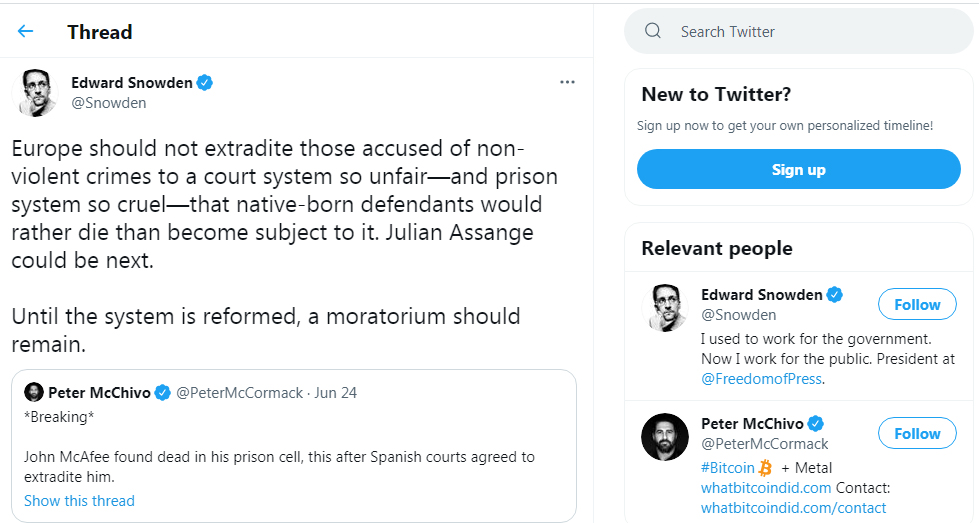Washington: US whistleblower Edward Snowden has something to say for Wikileaks founder Julian Assange. Edward Snowden made the comments after antivirus mogul John McAfee died by apparent suicide in a Barcelona prison. McAfee’s drastic step came after he was told that he will be extradited to the United States on tax evasion charges. Snowden, the former NSA consultant and data privacy advocate, has tweeted that Julian Assange ‘could be next’.
“Europe should not extradite those accused of non-violent crimes to a court system so unfair –and prison system so cruel – that native-born defendants would rather die than become subject to it. Julian Assange could be next,” Snowden tweeted Wednesday. “Until the system is reformed, a moratorium should remain,” he added.

In his last public tweet June 18, McAfee wrote: “All power corrupts. Take care which powers you allow a democracy to wield. Javier Villalba, one of the lawyer’s of the 75-year-old McAfee’s, said the antivirus software pioneer died by hanging as his nine months in prison brought him to despair.
McAfee said during a court hearing last month that given his age, he would spend the rest of his life in jail if convicted in the United States. “I am hoping that the Spanish court will see the injustice of this… The United States wants to use me as an example,” he was quoted as saying by the Spanish media.
Also read: Snowden urges Trump to pardon Assange
Assange was arrested in April 2019 in the United Kingdom (UK). In January this year a UK court temporarily blocked his extradition to the US on criminal charges including breaking a spying law. The court said that looking at Assange’s mental health problems meant he would be at risk of suicide.
Assange remains in Britain’s toughest jail, ‘HMP Belmarsh’, despite the January ruling. The 49-year-old has not got bail as he is considered a flight risk. Assange is still wanted in the US on an 18-count indictment, facing allegations of plotting to hack computers and conspiracy to obtain and disclose national defence
Assange’s prosecution followed WikiLeaks’ publication of hundreds of thousands of leaked documents in 2010 and 2011 that are related to the Afghanistan and Iraq wars. Some of those publications also have mentioned diplomatic cables that are meant to be a secret.






































